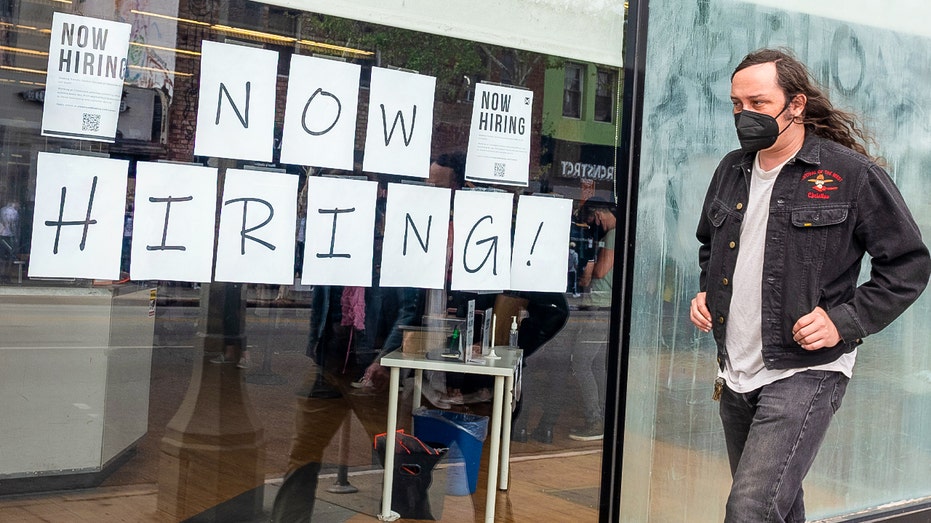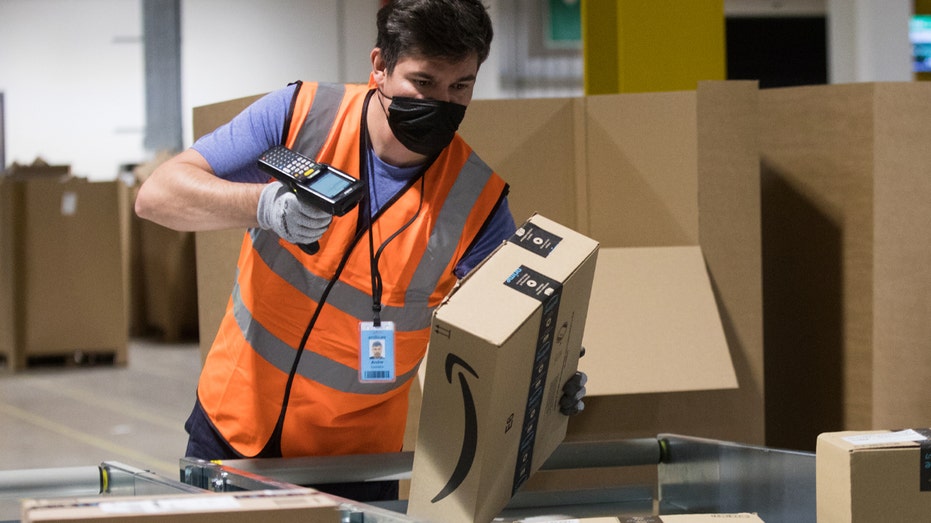October jobs report is expected to show a pickup in hiring
Economists have forecast that employers added roughly 450,000 jobs last month
Financial adviser on supply chain issues, October jobs report preview
Lebenthal Global Advisors President Dominick Tavella argues employment numbers will be 'better than they were last month,' but won't be 'shockingly better.'
The big question in Friday's release of the federal jobs report for October will be whether companies found more success this time in filling millions of open positions.
The U.S. economy has seen two disappointing months of hiring,
Economists have forecast that employers added roughly 450,000 jobs last month, according to a Refinitiv estimate.
GET FOX BUSINESS ON THE GO BY CLICKING HERE
That would be a stronger showing than the average monthly gain of 280,000 in August and September, though well below the increases of about 1 million jobs each in June and July.
The unemployment rate is expected to fall from 4.8% to 4.7%.
There are signs that the economy is emerging from a delta variant-induced slowdown and that the job market may be doing so as well. Consumer confidence rose in October after three months of declines. Services companies in such areas as retail, banking and warehousing reported a sharp jump in sales. And more Americans bought new homes last month.
U.S. private-sector hiring accelerated in October.
PRIVATE-SECTOR HIRING PICKS UP AS WORKERS CONTINUED TO POUR INTO SERVICE JOBS
The U.S. economy added 571,000 private-sector jobs last month, up from a downwardly revised 523,00 new jobs in September, according to the ADP National Employment report released Wednesday. Analysts surveyed by Refinitiv were expecting the addition of 400,000 jobs.

A man wearing a mask walks past a "now hiring" sign on Melrose Avenue amid the coronavirus pandemic in Los Angeles. (Getty Images / Getty Images)
Data released Thursday by the Labor Department showed initial jobless claims in the week ended Oct. 30 declined by 14,000 from the week prior to 269,000, making for the lowest reading since March 14, 2020. The previous week’s reading was revised higher by 2,000 to 283,000 filings.
JOBLESS CLAIMS SLIDE TO PANDEMIC-ERA LOW
Some companies say they are still having trouble finding enough workers. it was predicted that the expiration of a $300-a-week federal unemployment supplement would send people back into the workforce, but that hasn't happened.
Most economists, though, say they're hopeful that with vaccinations helping to suppress the delta wave, more people will seek and find jobs because they're no longer sick or caring for someone who is or because they no longer fear becoming infected.
America's workers, who now enjoy greater leverage in the job market than they have in decades, are receiving solid pay increases.

An employee wearing a protective mask scans a package at an Amazon.com Inc. fulfillment center. (Getty Images / Getty Images)
Wages and salaries in the July-September quarter, compared with a year earlier, jumped by the most in 20 years. Most of that gain, though, went to already employed people who left their jobs: The number of people who quit, mostly to take new positions, has reached a record high.
Rising inflation has taken a bite out of the value of those pay increases and has become the most serious headwind for the U.S. economy. Higher costs for food, heating oil, rents and furniture have burdened millions of families. Prices rose 4.4% in September compared with 12 months earlier.
CLICK HERE TO READ MORE ON FOX BUSINESS
That inflation surge was a key reason why the Federal Reserve announced this week that it would begin winding down the stimulus it has given the economy since the pandemic recession struck last year. The Fed will do so by reducing its monthly bond purchases, which have been intended to hold down long-term interest rates to spur borrowing and spending.
The Associated Press contributed to this report.





















